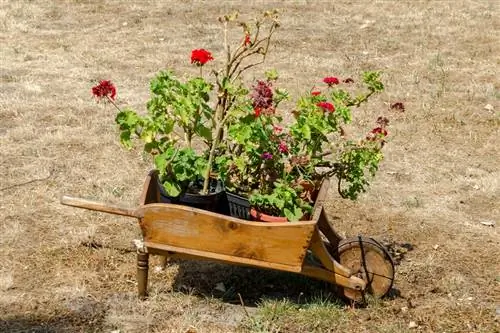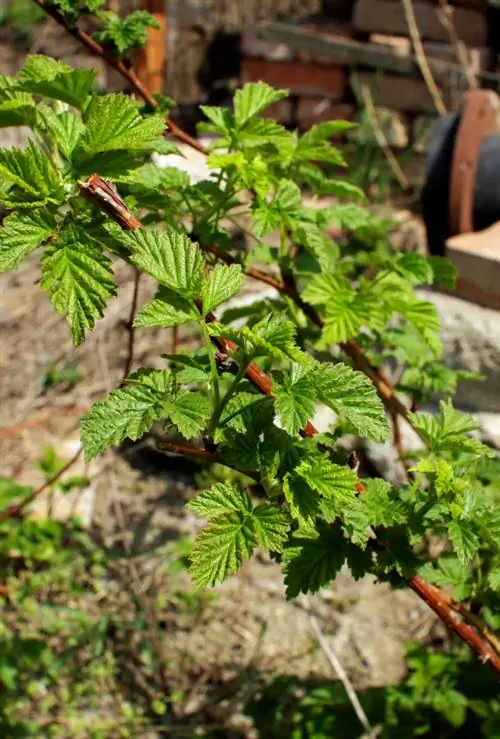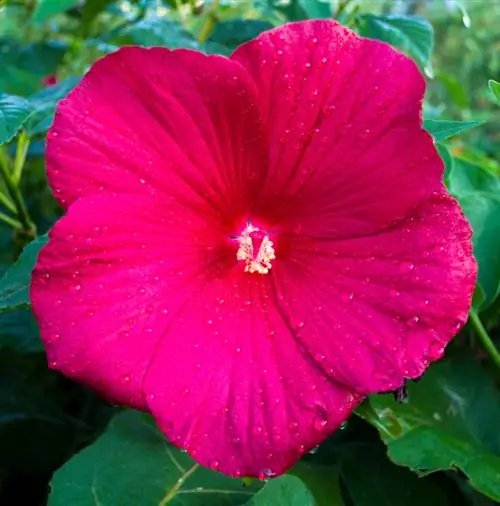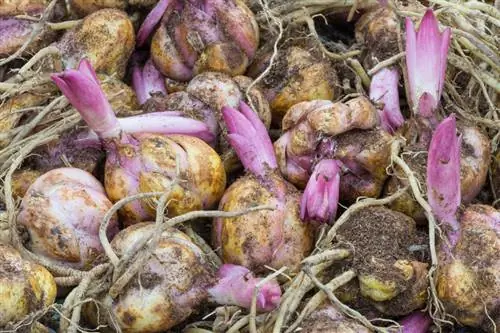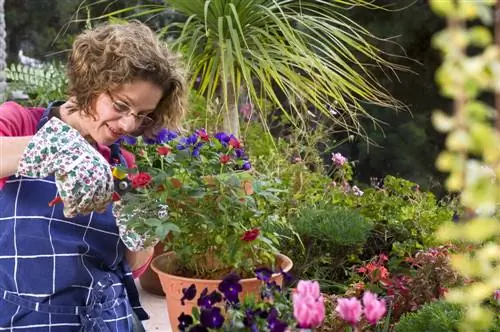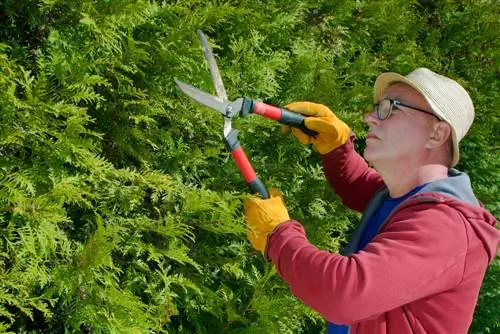- Author admin leonars@hobbygardeners.com.
- Public 2023-12-16 16:46.
- Last modified 2025-01-23 11:20.
Geraniums are not hardy and must therefore overwinter frost-free but cool. You can also overwinter the flowers without soil and in a dark basement, which only requires a small amount of space. This also minimizes the amount of care required for the sensitive plants. However, the prerequisite is that the geraniums are radically cut back in time before the winter break.
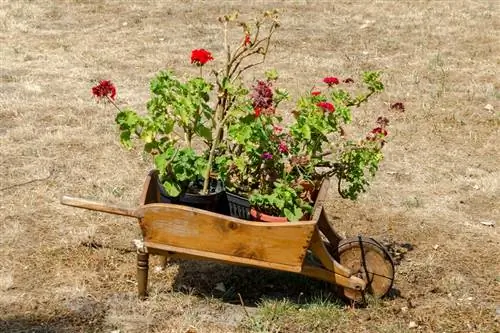
How do you prune geraniums before overwintering?
For overwintering, you should cut back geraniums in good time: Remove all leaves, buds and flowers; Shorten shoots by around a third to half so that the plant remains around 20 centimeters high. Don't forget to thin and rejuvenate the roots too.
Pruning before winter rest
Before overwintering, start by removing all leaves, buds and flowers. The leaves in particular would only rob the plant of its strength in winter, and they are also a dangerous entry point for bacteria and other pathogens. Once everything green has been removed, all that remains is the bare framework of woody and fresh shoots - which are also shortened by around a third to half. After pruning, the geranium should be approx. 20 centimeters high.
Don’t forget to cut the roots
Just like the above-ground parts of the plant, the roots should also be pruned in order to thin out and rejuvenate them. For this purpose, the thin, fibrous roots in particular are removed, while the thicker and stronger main and trunk roots are only shortened slightly. You should also carefully cut away rotten and dead parts.
Cut geraniums in spring too
In the spring, further pruning is necessary before the first shoots in order to remove water shoots that have grown over the winter. These weak branches cannot develop flowers and only inhibit the plant's development. After spring pruning, plant the geraniums in a pot or balcony box with fresh substrate.
Tip
Nevertheless, you should only put the freshly trimmed and planted geraniums outside in mid to late May, when there are no longer any dangers from frosty temperatures. Geraniums (which, botanically correctly, are actually called pelargoniums) are very sensitive to cold and should, if possible, not be exposed to temperatures below five degrees Celsius.

